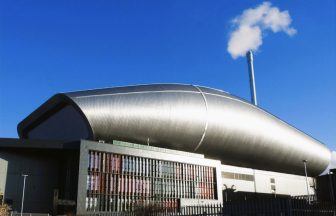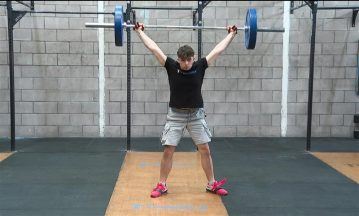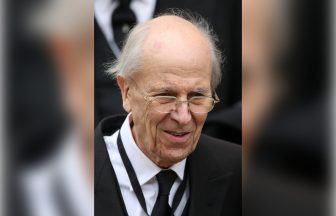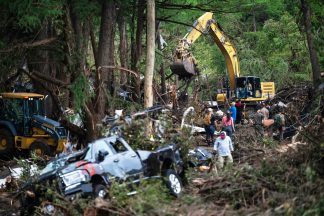Momentum in politics is a phenomenon that politicians fear, especially if they are on the wrong end of it.
It is to be found in a sequence of events that question the credibility of a leader or party and which has the consequence of emboldening political opponents.
Both Rishi Sunak and Humza Yousaf are on the wrong end of the political currents, suggesting that next year’s general election is going to be a sobering experience.
When the First Minister surveys the political terrain, his vision is clouded by a fog defined by failing public services, a fiasco with the ferries, by election blues, internal divisions, defections to other parties and an overwhelming sense that his party is defined by an inability to manage events.
For the Prime Minister, by-election disasters in heartland seats reveal that the bedrock of Conservative support has lost patience with a party presiding over an embarrassing record for a Conservative: higher taxes, record levels of debt, and an economy crashed by a here today and gone tomorrow Prime Minister. Not to mention the anger of the Right at the inability of Sunak to cut net migration and lead a war on woke.
There is a sense that both the Westminster and Holyrood governments are defined by a perceptible sense of drift and an inability to get voters onside with a coherent set of policies to deal with elector concerns.
For Sunak, there are echoes of John Major.
Towards the end of Major’s time as Prime Minister, there was an audible electoral groan and a feeling the Tories had been in government too long.
And some of Sunak’s colleagues would have fitted in well in the Parliamentary Conservative Party of the 1990s. A lot of its number revelled in what became known as “sleaze”, a tabloid term for financial and sexual shenanigans.
The current predictions from Electoral Calculus following the party conference season has Labour on a 19 point lead. They predict a Labour majority of 236 seats based on polling.
There is no chance of that happening.
There is always a swing back to the government in the run up to the election. The campaign will also put Sir Keir Starmer under the kind of scrutiny that is a far cry from the benign probing meted out to a Leader of the Opposition.
Starmer’s strategy appears to be to say little and commit to nothing on the basis that to say something is to give the Tories a target to aim at. It will keep him ahead in the polls since they are primarily a barometer of how voters view the government, but it can’t possibly see him through an election campaign.
Although these poll leads and electoral predictions are redolent of Tony Blair’s position ahead of the 1997 election, they are different in one key respect. Starmer is nowhere near as popular as Blair (yes there was a time when Tony Blair was wildly popular).
Labour are the recipients of voter anger, but they have yet to “seal the deal”, where there is a stampede to vote Labour because electors crave the change they are offering.
There’s a simple reason for that; it is not at all evident (at least to this scribbler) exactly the scope of the change that Labour will offer.
In a sense, Humza Yousaf is in a slightly easier position. The next Scottish election does not come until 2026, so he would have time to deal with the fallout of a poor showing next year.
His problem is that a poor showing will lead to a run on his leadership and a further round of internal unease and squabbles.
A poor showing by the SNP might not afford him a chance to take stock, particularly if his colleagues conclude he should be sent to the knackers’ yard.
The Scottish Election Study has just published its latest Scottish Opinion Monitor. The fieldwork for the survey was completed after Labour’s comprehensive victory in Rutherglen and Hamilton West.
Among the key findings: 66% of voters expect Labour to win the general election. Just 11% thought the Conservatives would win.
Cheeringly for Labour, 38% said they would vote for the party in Scotland at the UK general election as opposed to 32% for the SNP.
Although the Nationalists are ahead in voting intentions for Holyrood, this gap in potential support at a UK General Election would see the SNP lose many seats.
The current trends identified in the survey are summed up researcher Dr Fraser McMillan, who said “the data reinforces the impression we’ve been getting for most of this year that Scottish voters are ready to punish the SNP and the Conservatives, with both parties having spent a long time in power at Holyrood and Westminster respectively”.
Somewhat ominously for the governing parties, he continued: “Labour are currently attracting voters from all the other major parties and picking up around 20% of Yes supporters in Westminster voting intention. The SNPs dominance over the last decade has been built on monopolising pro-indy Scots but they’re finally seeing some of that support drift away.”
Polls are just snapshots of opinion and not a certain prediction about the outcome of an election. Polls react to short term issues and frustrations and for that reason come with many health warnings.
However, there is one aspect of polling that is beyond debate. They help mould a mood and they can fuel momentum for one party and against another.
There is no momentum with either Rishi Sunak or Humza Yousaf.
From the vantage point of today, it is simply impossible to see how the Prime Minister can win an election and how Yousaf can hold on to what the SNP currently has by way of Westminster representation.
Defeat for Sunak will usher a Tory civil war in which a party that has given us a dissembling showman (Johnson) and an incompetent (Truss), will decide on the next lead in their next instalment of Carry On Politics.
Big losses for Yousaf and I expect an internal implosion marred by dissent and acrimony, a sense of disbelief that the Yes movement, so dominant in the immediate post 2014 period, should be rendered so damaged.
So, are Sunak and Yousaf doomed at next year’s election? In a word, yes.
Follow STV News on WhatsApp
Scan the QR code on your mobile device for all the latest news from around the country























